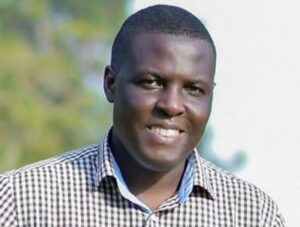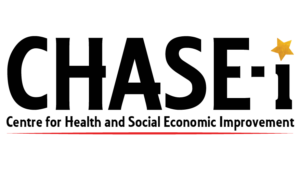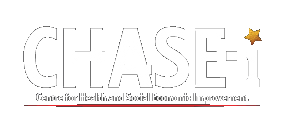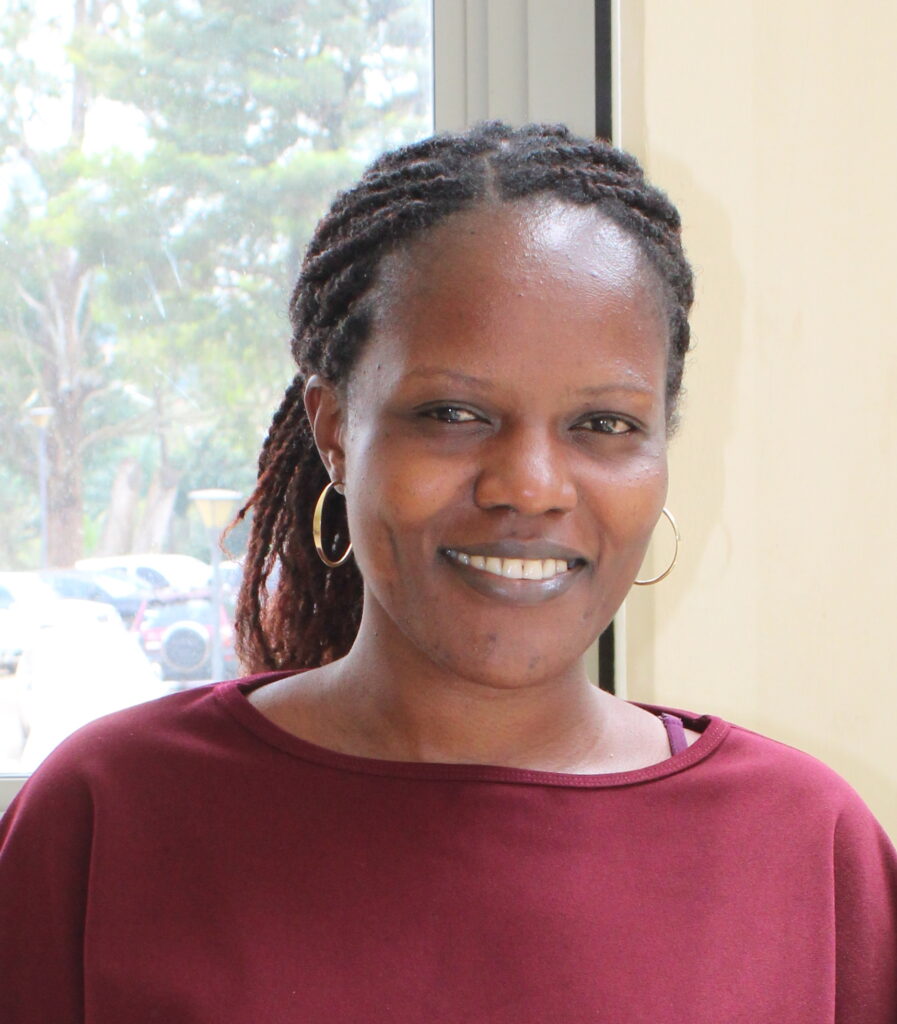A policymaker’s perspective on the REFLECT Study.

Brian Luswata
- December 20, 2020
How important has the REFLECT study been to Ministry of Health?
Brian Luswata: For us as the Ministry of Health, I think it has been a good eye opener as to whether our Covid-19 response activities have been effective. And it sorts of helps us to identify the issues that bring about non-compliance and suggests ways in which we can address them. And then, of course, the findings have implications and how we can make our policies.
Regarding policy decisions on COVID-19 – around disease prevention, case management and healthy living: how has the REFLECT study been important in that area of policy decisionmaking?
Brian Luswata: In the area of policy, we think the best way ofcourse to combat this pandemic is by complying with all the the health advice, as set forth by the Ministry of Health and World Health Organisation – there is no two ways about it. But then as the Ministry [of Health] we note that this has been hampered by the attitudes; and then the way our health promotional messages have been packaged. So, on our part we now think that the type of policy we put together and the regulations to fight the pandemic are not very realistic. For instance, the policies do not take into account the overcrowding in the refugee camps, because that is a reality. You cannot ask the refugees to return to their home countries simply because there’s COVID; you have to work within the existing means. The policy we have does not take into account the different social, geographical and age settings. So, we think that as we are making guidelines to combat this pandemic, we need to be mindful of the various sociocultural settings that the people live in; so that our policies are structured to the setting of the people. As opposed to driving policy, from top downwards. We need to think down-upward.
As a Co-Investigator on this study and Ministry of Health representative, what do you think has gone well, as far as participating and implementing this study is concerned?
Brian Luswata: From a policy perspective, I think that the study was very good, because it is evidence-based. It went down to the ground and looked at the people and the environment in which they live. So, for me, I think that is one of the biggest successes of this study. Because it is evidence-based and if we are to make policy it is better when it is derived from the point of evidence.
I would like to talk about the Partnerships: the REFLECT study had so many partnerships – with Gulu University, Makerere University, ACORD, LWF, even NASWU. What are some of the lessons you have learned from this partnership?
Brian Luswata: I think the approach of the people in academia is a little bit unique in the sense that it is both qualitative and quantitative. So, you look at a wide spectrum of things. So, I think it was really good that this research actually was led by people in academia. Then when it comes to the humanitarian organisations that we worked with on this study; what I can say is that ofcourse, for us in the health sector, we cannot work without our [development, implementing and other] partners, because they help us a lot. But in the case of this particular partnership on REFLECT, I think the partnerships were important because they were tailored to the needs of the study. Because many times we get partners who just push their demands on us [health sector], they impose their demands on us. But in this case, it seems their support was just tailored to the requirements of the study. So, I wish actually they could replicate the same for us government – that their support is driven by what we really need. Where we ask them “you know we have this problem, can you support us in that way?” As opposed to them coming with their programmes and then they just throw them at us regardless of whether we need them or not.
You were part of the team that went for the [REFLECT Study] dissemination exercise in Adjumani [one of the study sites]. What are some of the lessons that the Ministry of Health can draw from that experience you had in Adjumani?
Brian Luswata: I remember one of the issues that one of the participants raised when we were in the dissemination, I think she’s one of the leaders in the refugee camp. She said that whenever government people come, they don’t look out for the local leaders, the lowest level of leaders. Let’s say the LC 1 [Local Council 1, lowest leadership level in Uganda’s decentralised governance system]. But they go to the district [sub-national level] where you find the highest-ranking civil servants who many times actually are out of touch with the reality on-ground. They come and attend our workshops or events, but they do not actually transmit that information to the lower level leaders. So for me, that was a very useful lesson – that when we go out to the community, actually, we need to work with the people at the grassroots as opposed to just coming and then we meet the LC 5 [highest political office at the sub-national level], we meet the Chief Administrative Officer [Accounting officer and head of government business at sub-national level]. And then many times our message actually does not shift through to reach the people whom we intended the message to reach.
And I realized that maybe even our health messages may actually not reach the people because of that. Because I noticed that in Adjumani, if you want to appeal to the refugee population, the message must be in Arabic. You get it? So the language in which you relay your message is very important. And how you get to know the language which the people understand is by reaching, out to the lower-level leaders, because they know what the people want. I imagine when the Ministry [of Health] sends teams there; maybe they translate the messages in Madi [one of the multiple local languages], because they think everyone in the vicinity knows Madi or they speak Dinka [one of the languages spoken by the refugee community from South Sudan] or those other languages of the refugees yet it is Arabic which the refugees understand the most. And it cuts across.
Then one other message I picked from there is the fact that, we tend to assume that by mere translation, the community will get the message. Yet some of them actually do not know how to read even if you put the message in the local language on the poster. It is much better to use the pictorial as opposed to the written message if you want the message to be very effective. I learned that from the dissemination. A picture speaks a thousand words; even a child will get to know the message.
What would you tell the research funding community, like the people who are supporting studies such as REFLECT?
Brian Luswata: Of course, we appreciate their support. Because of resource constraints, government cannot actually have gathered the resources to support all these activities. So those partners are coming in help to fill that void. And we saw that in this study, actually, they have done a lot of work to support. I saw some of the very beautiful banners which were developed by the study, and we [the Health Ministry] are trying to help them get that message accredited for even wider dissemination beyond study sites. But how else could we have got that message out without the support of the partners? You know things like airtime for the radio shows, all the logistics and all the mobilisation? So, we are really grateful to the partners.
Thank you so much Brian. Is there anything else that you would like to say?
Brian Luswata: Well, for us, we need to have more partnerships with the academia. Because this study has shown that if you put policymakers together with academia, actually you get a very good product. I think we need more partnerships like these. The academicians and the researchers should not just stay in the university – they should actually come and work with us. Because like me, I think it’s the first time I’m embedded and working with academia. And it sorts of gives you the real feel; that if I were to enact policy now, I would enact it from a point of advantage because I’ve seen for myself. As we would go to the field, with them sometimes. And it’s sort of the best partnership. As the health sector’s lawyer and legal adviser, this whole REFLECT experience has shaped the way in which I will be doing my policy work. The best way to derive policy, I think, should be academia and policymakers working together as a team. Ofcourse we are looking forward to more partnerships and now we have to work on translating the findings and recommendations of this study into policy.
About the Interview
This Quick Interview with Mr. Brian Luswata was conducted on 20th December 2020 by Francis Abura, CHASE-i Associate.


